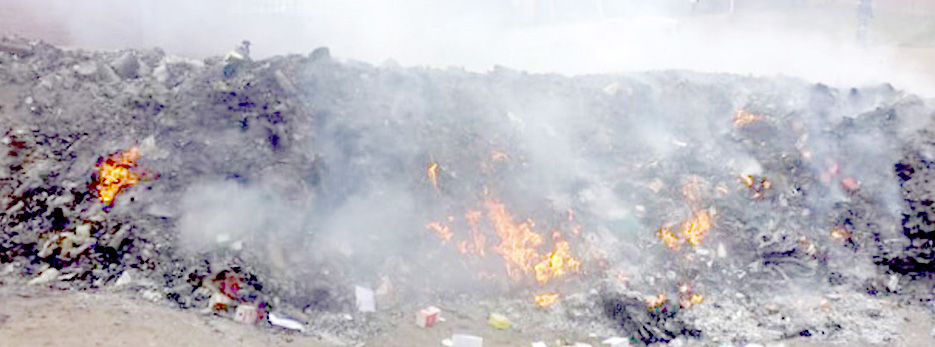Black Carbon from Open Waste Burning
Environmental Risks and Human Exposure

Doctoral Student
Project Duration
2022 - 2025
Supervisor
Abstract
This project addresses the critical issue of open waste burning and its environmental and health impacts in Blantyre, Malawi.
In Blantyre, open waste burning is widespread due to inadequate waste management services and infrastructure. Our research is centered on understanding the repercussions of open waste burning on air quality, particularly black carbon pollution, across multiple socioeconomic areas.
While prevailing air quality standards are primarily based on the concentration of different sizes of particulate matter (PM) (e.g. PM10 and PM2.5) it's imperative to acknowledge the heightened health risks posed by particles from combustion sources, notably black carbon. Black carbon, a component of PM2.5 resulting from combustion, possesses a global warming potential 5000 times higher than CO2.
Poor air quality is compounded by inequality, in that planned settlements typically receive regular waste collection, while residents of informal areas do not, meaning that burning is one of the few options available. By proposing strategies from our research findings, this project aims to bridge the gap toward air quality equity.
Research Questions
In the context of Blantyre, Malawi, this research aim to answer the following questions:
- What marker is suitable to reflect open waste burning emissions?
- How much do emissions from open waste burning contribute to ambient black carbon concentrations?
- What is the personal exposure to black carbon emissions from open waste burning?
Opportunities for student involvement
Yes! Check out opportunities to work with us and get in touch.
Collaborators
Publications
Media mentions in newspapers or YouTube etc
external page Interview with WASTE Advisers MW on the adverse impacts of open waste burning